Charles E W Bean, Diaries, AWM38 3DRL 606/114/1 - June 1918 - Part 9
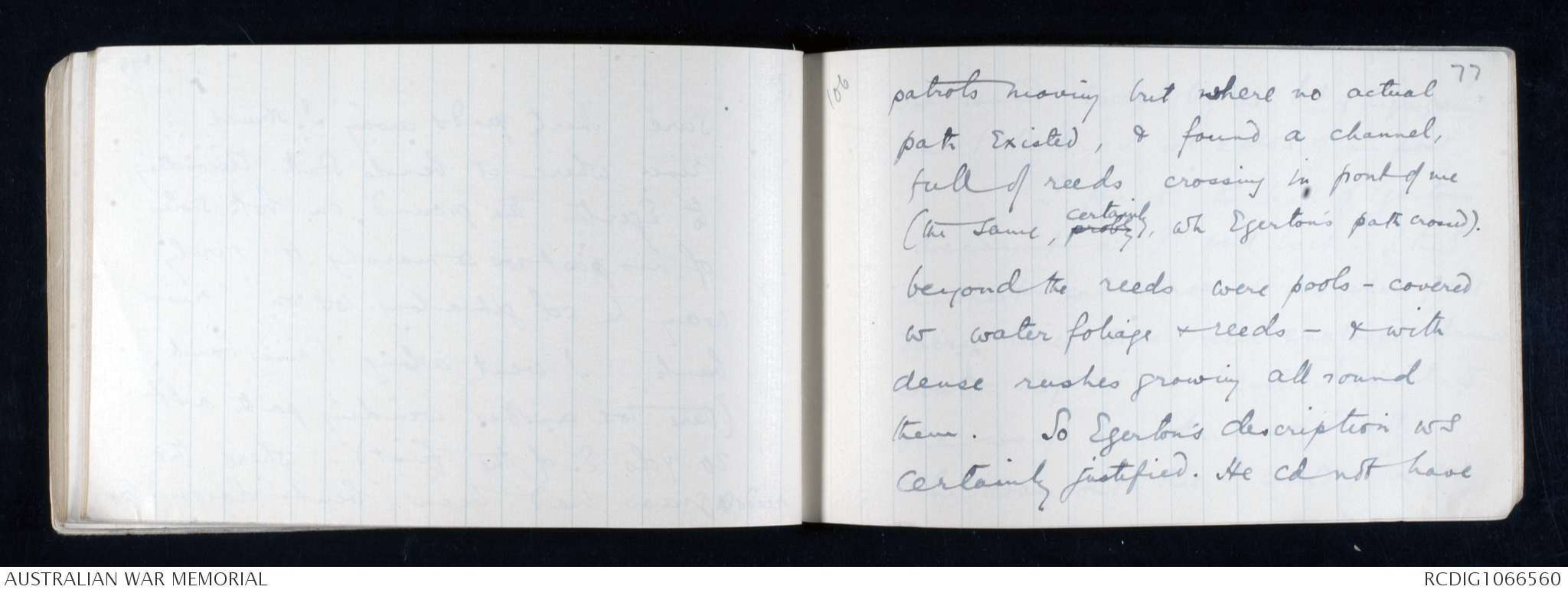
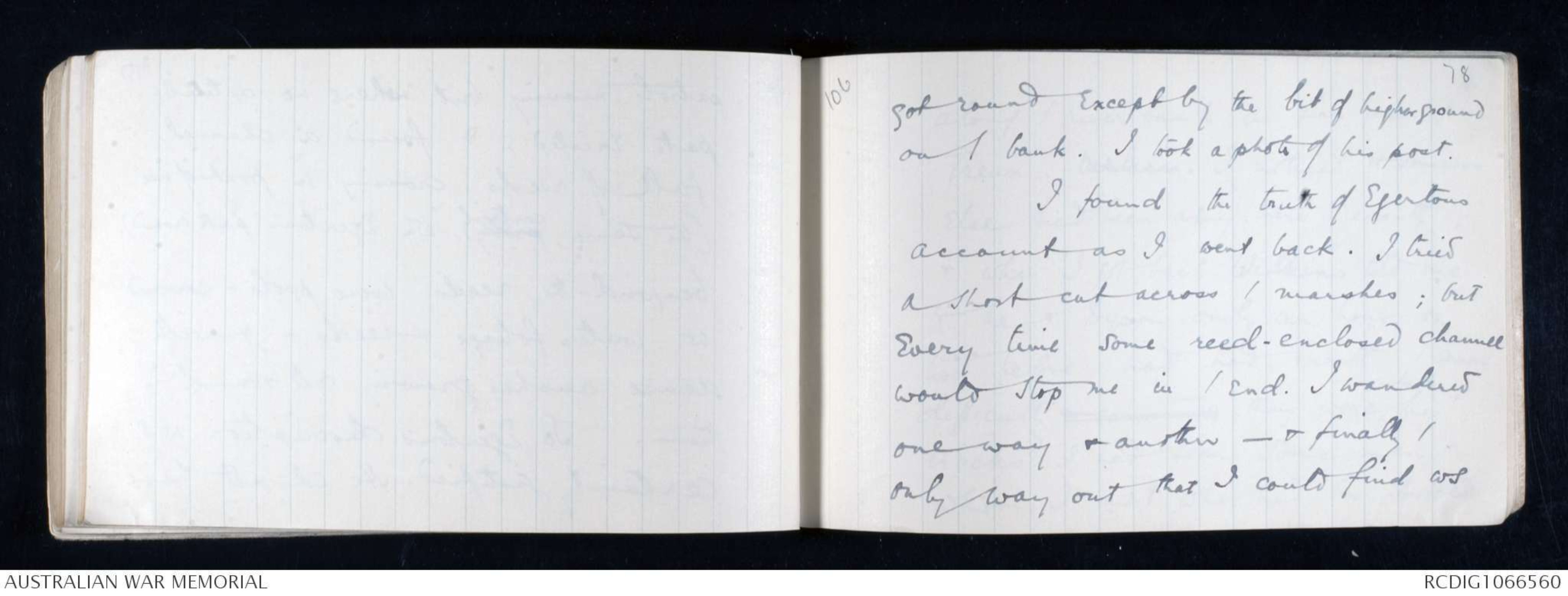
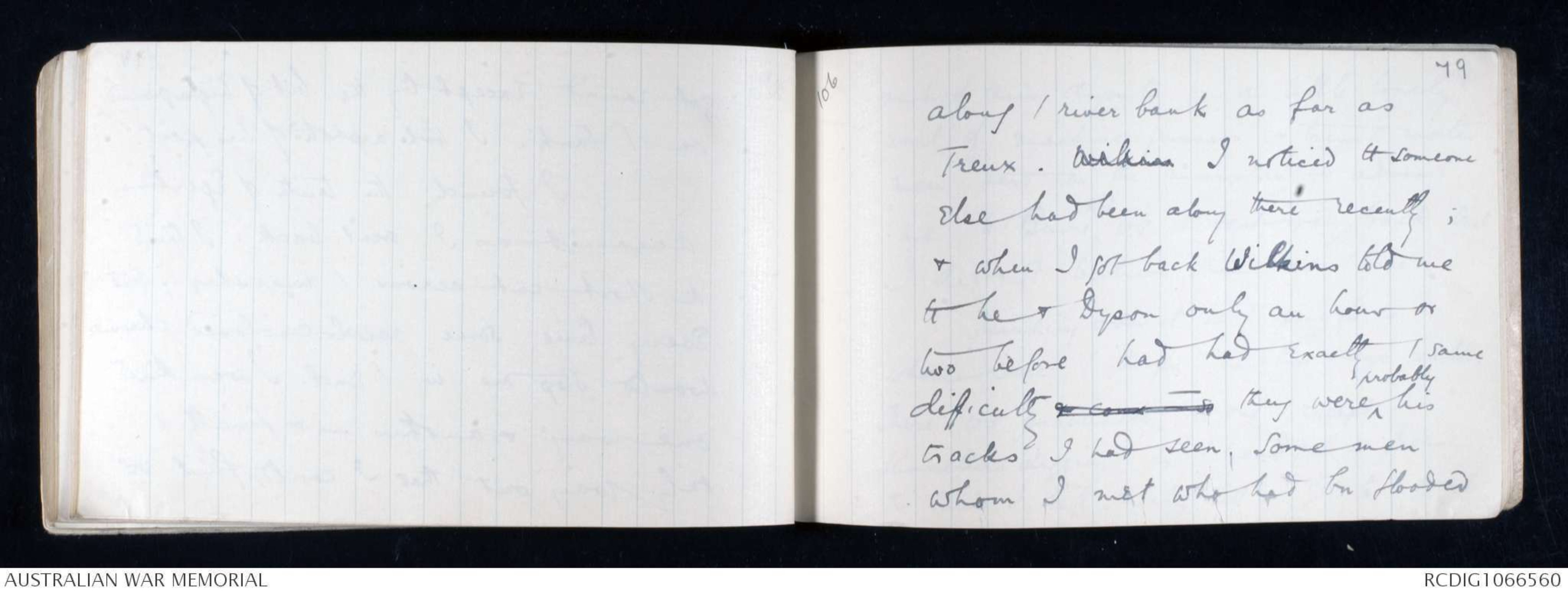
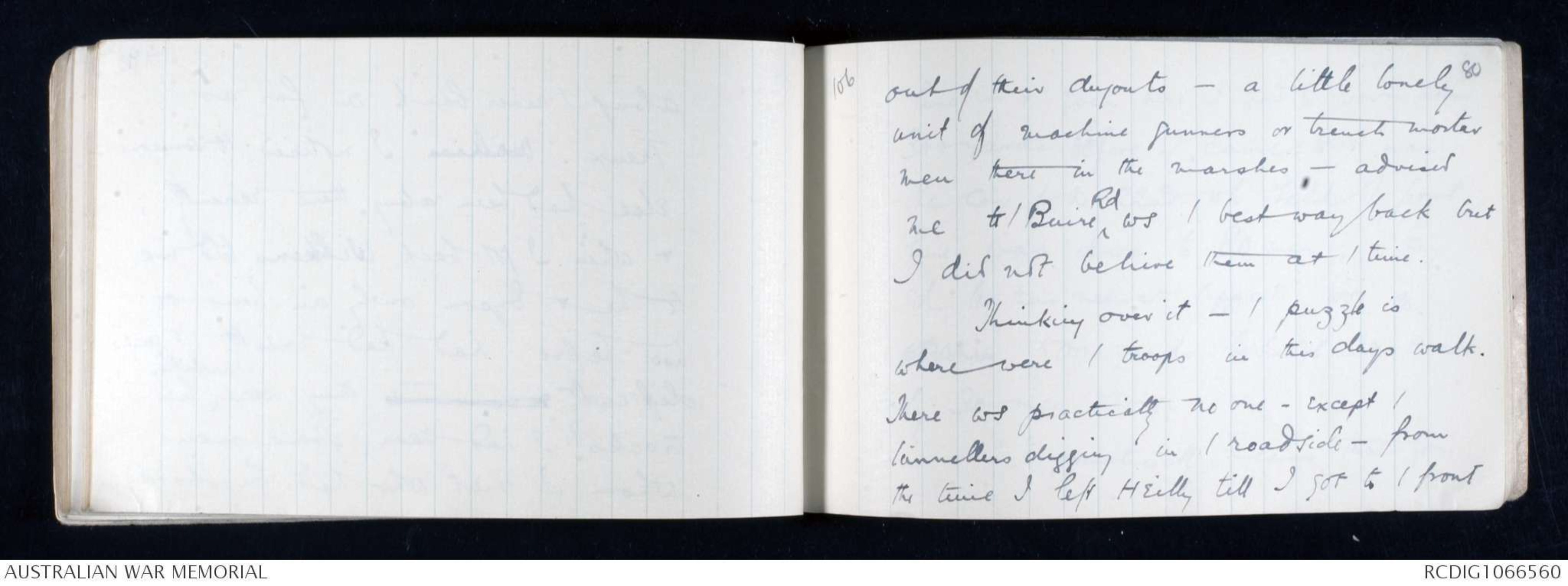
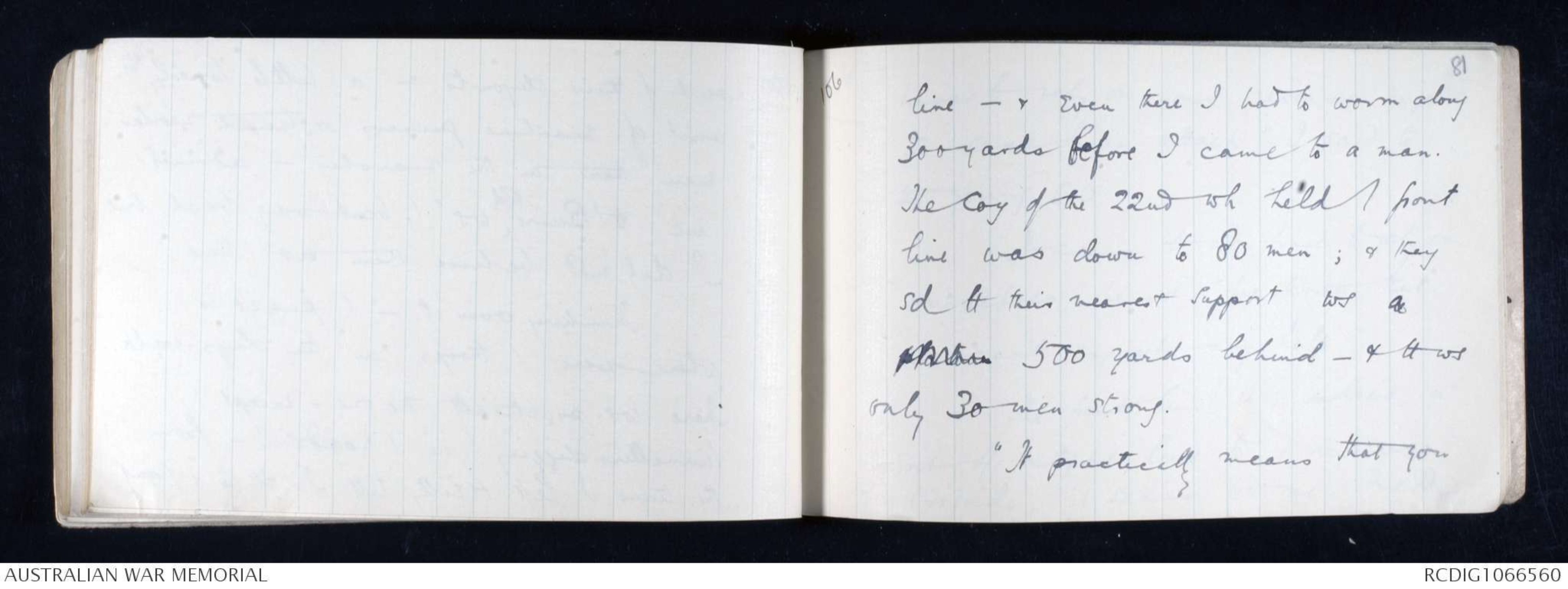
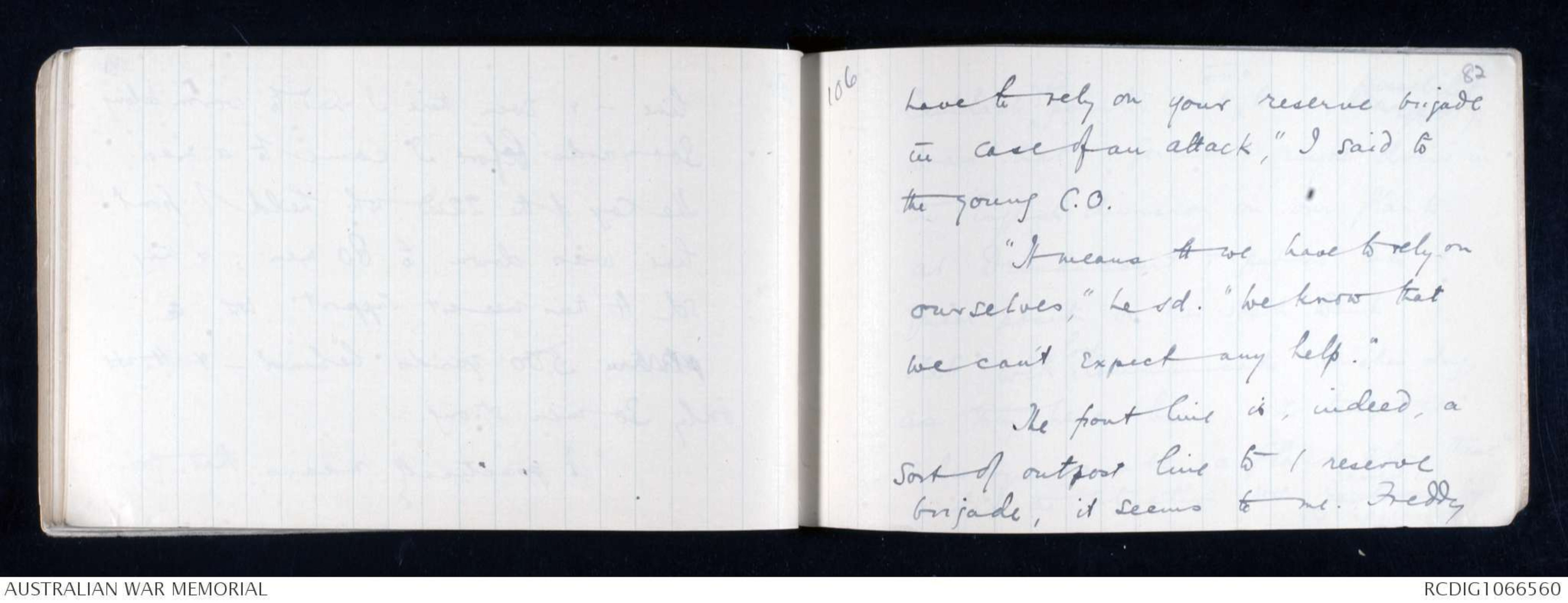
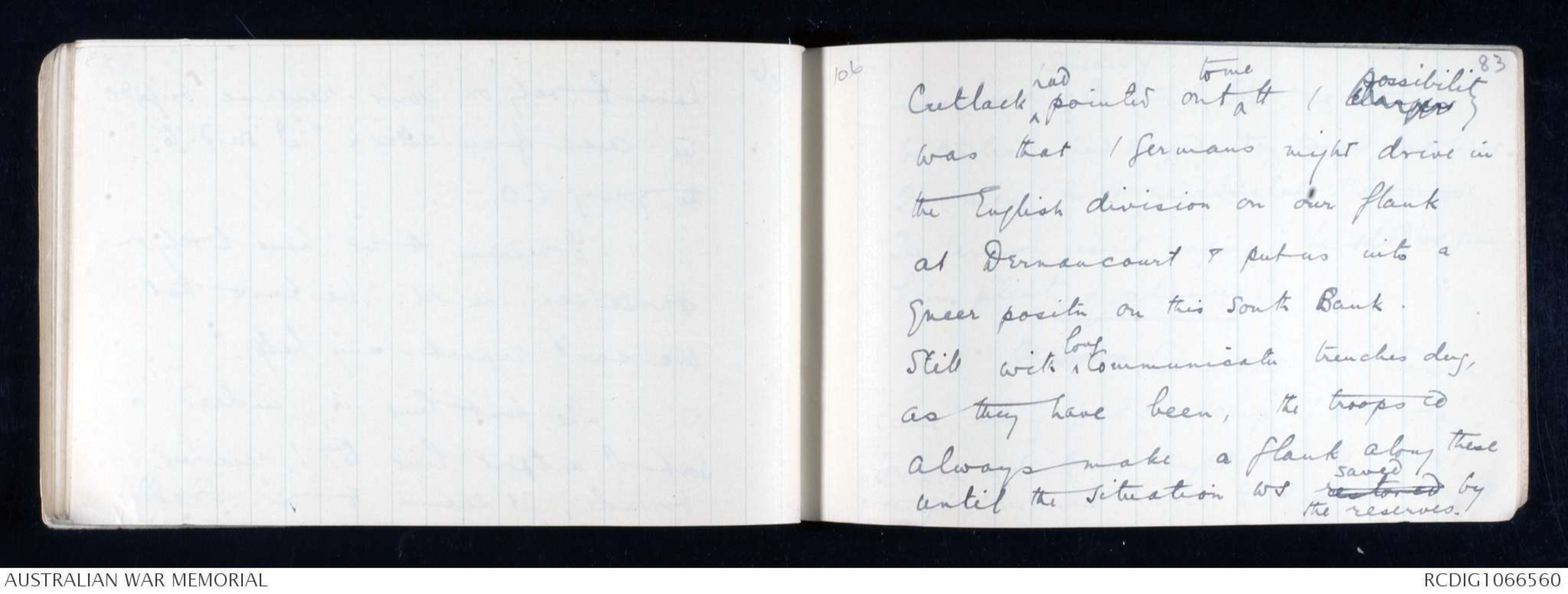
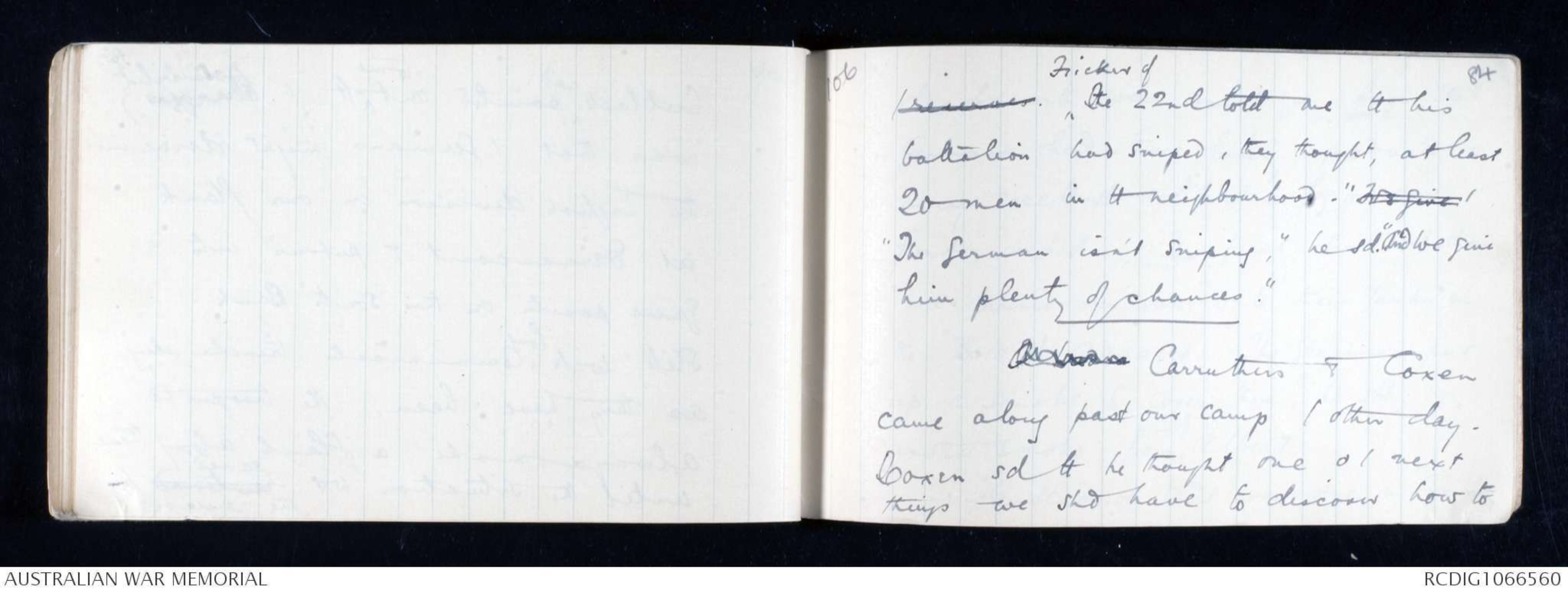
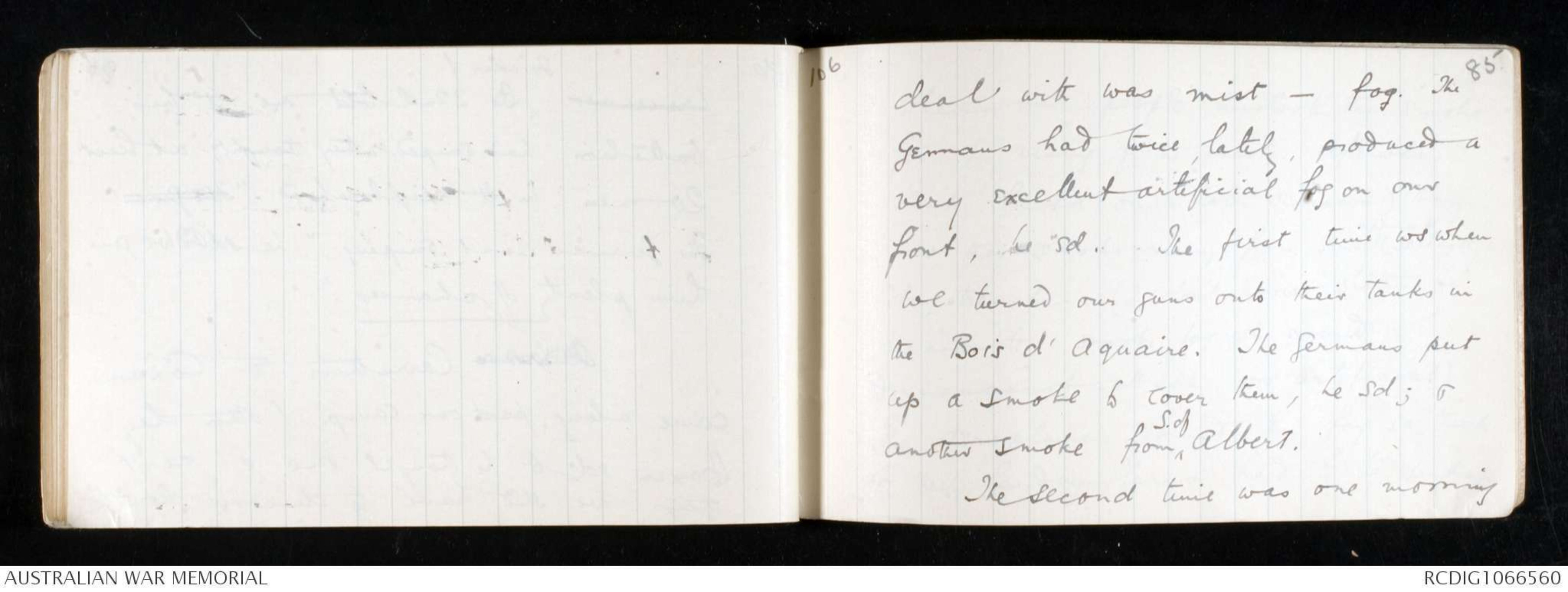
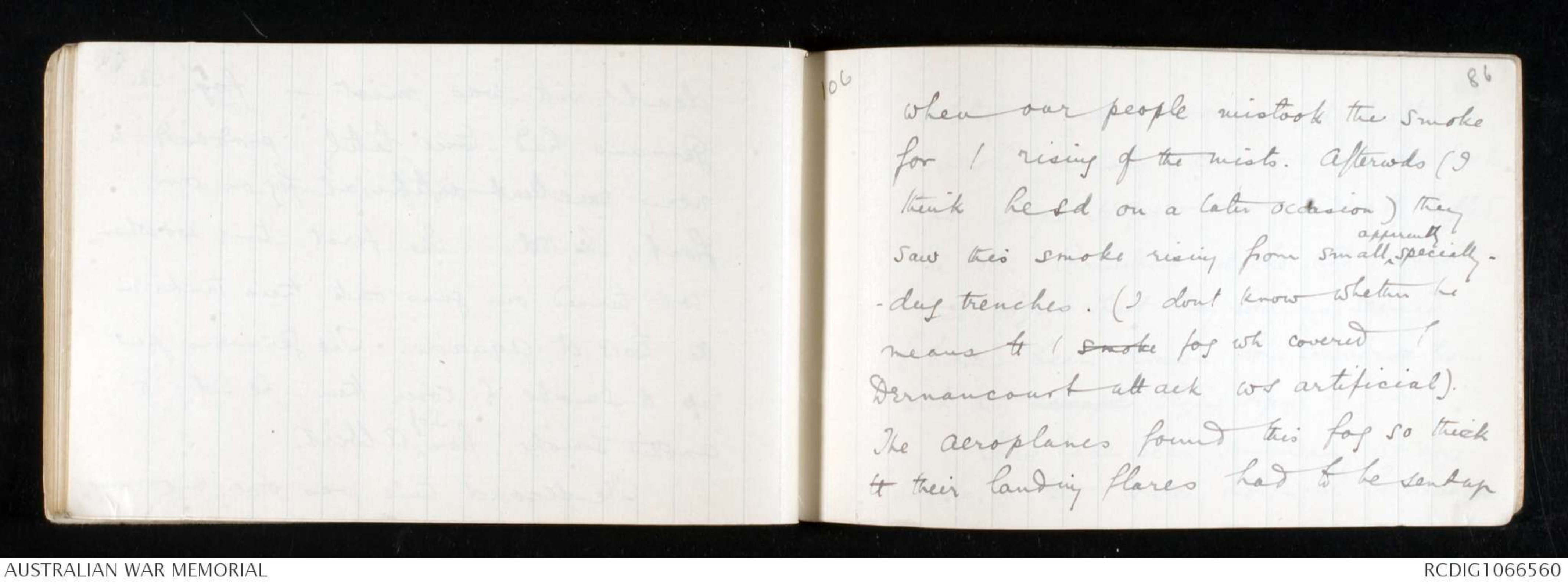
106 77
patrols moving but where no actual
path existed, & found a channel,
full of reeds crossing in front of me
(the same, probly certainly, wh Egerton's path crossed).
beyond the reeds were pools - covered
w water foliage & reeds – & with
dense rushes growing all round
them. So Egerton's description ws
certainly justified. He cd not have
106 78
got round except by the bit of higher ground
on / bank. I took a photo of his post.
I found the truth of Egertons
account as I went back. I tried
a short cut across / marshes; but
every time some reed-enclosed channell
would stop me in / end. I wandered
one way & another - & finally /
only way out that I could find ws
106 79
along / river bank as far as
Treux. Wilkins I noticed tt someone
else had been along there recently;
& when I got back Wilkins told me
tt he & Dyson only an hour or
two before had had exactly / same
difficulty & come - so - they were ^probably his
tracks, I had seen, some men
whom I met who had bn flooded
106 80
out of their dugouts - a little lonely
unit of machine gunners or trench mortar
men there in the marshes – advised
me tt / Buire ^Rd ws / best way back but
I did not believe them at / time.
Thinking over it -/ puzzle is
where were / troops in this days walk.
There ws practically no one - except /
tunnellers digging in / roadside - from
the time I left Heilly till I got to / front
106 81
line – & even there I had to worm along
300 yards before I came to a man.
The Coy of the 22nd wh held / front
line was down to 80 men; & they
sd tt their nearest support ws aplatoon 500 yards behind - & tt ws
only 30 men strong.
"It practically means that you
106 82
have to rely on your reserve brigade
in case of an attack," I said to
the young C.O.
"It means tt we have to rely on
ourselves," he sd. "We know that
we can't expect any help."
The front line is, indeed, a
sort of outpost line to / reserve
brigade, it seems to me. Freddy
106 83
Cutlack ^had pointed out ^to me tt / xxxxxxx possibility
was that / Germans might drive in
the English division on our flank
at Dernancourt & put us into a
queer positn on this south Bank.
Still with ^long comminicatn trenches dug,
as they have been, the troops cd
always make a flank along these
until the situation ws restored saved by
the reserves.
106 84/reserves∧ Fricker of the 22nd told me tt his
battalion had sniped, they thought, at least
20 men in tt neighbourhood. " We give /
"The German isn't sniping," he sd. "And we give
him plenty of chances."
—————xxxxxxx Carruthers & Coxen
came along past our camp / other day.
Coxen sd tt he thought one o / next
things we shd have to discover how to
106 85
deal with was mist - fog. The
Germans had twice, lately, produced a
very excellent artificial fog on our
front, he sd. The first time ws when
we turned our guns onto their tanks in
the Bois d' Aquaire. The Germans put
up a smoke to cover them, he sd; &
another smoke from ^S. of Albert.
The second time was one morning
106 86
when our people mistook the smoke
for / rising of the mists. Afterwds (I
think he sd on a later occasion) they
saw this smoke rising from small ^apparently specially -
- dug trenches. (I don't know whether he
means tt / smoke fog wh covered /
Dernancourt attack ws artificial).
The aeroplanes found this fog so thick
tt their landing flares had to be sent up
 Diane Ware
Diane WareThis transcription item is now locked to you for editing. To release the lock either Save your changes or Cancel.
This lock will be automatically released after 60 minutes of inactivity.